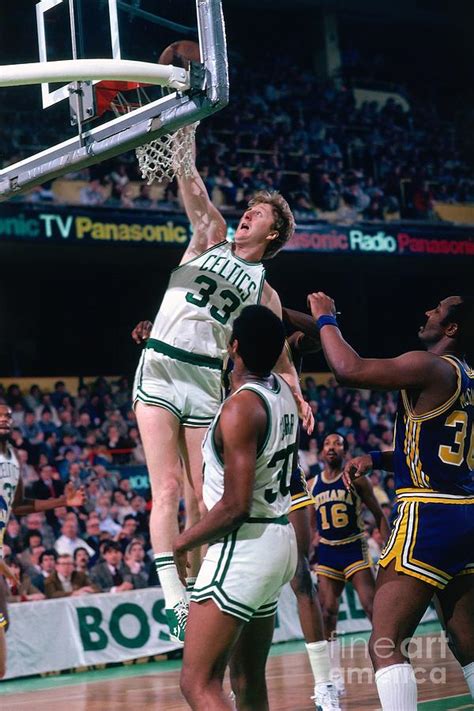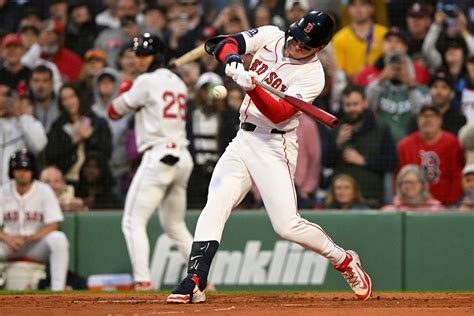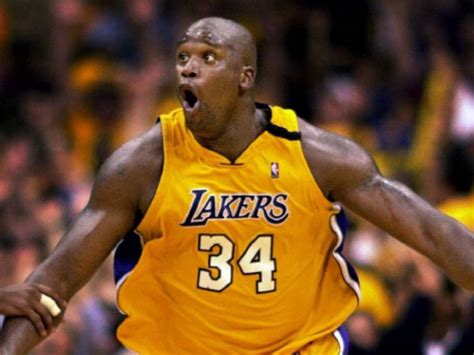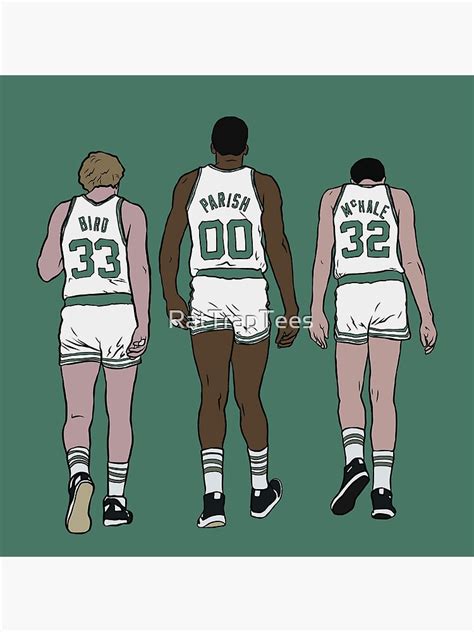
Larry Bird, despite being posterized by X man Shaquille O’Neal early in his career, and having a highlight-reel dunk by Shawn Kemp overshadow a clutch three-pointer against the Seattle Supersonics, cemented his legacy as a dominant force whose complete game transcended any single play.
Larry Bird was more than just highlight-reel fodder. He was a complete basketball player, and that’s how he should be remembered. Shawn Kemp’s emphatic dunk over Bird in Game 1 of the 1996 NBA Playoffs, though visually stunning, ultimately couldn’t erase Bird’s overall brilliance and winning pedigree, and it is a microcosm of how single, isolated moments are often emphasized over a player’s broader impact and consistent excellence. The focus on Kemp’s dunk and O’Neal’s poster is understandable given their immediate visual appeal, yet they detract from a more nuanced appreciation of Bird’s multi-faceted skill set, basketball IQ, and competitive drive that defined his Hall of Fame career. Bird’s response to such plays often involved sinking a three-pointer or making a critical pass, demonstrating his ability to influence the game in numerous ways beyond high-flying theatrics. These skills underscore why Bird remains one of the sport’s most revered figures, proving that enduring greatness isn’t about single iconic plays but rather sustained performance and comprehensive impact.
While those moments undoubtedly make for spectacular viewing and have lingered in NBA lore, they are contextualized by Bird’s career statistics, championship pedigree, and overall impact on the game. The story surrounding Bird transcends highlight-reel plays. It embodies his grit, versatility, and unparalleled basketball IQ. The fascination with isolating these individual instances, whether O’Neal’s dunk or Kemp’s poster, tends to obscure Bird’s complete game. Bird’s greatness extended far beyond athleticism; it encompassed court vision, passing ability, clutch shooting, and an unmatched understanding of the nuances of the game. He consistently made winning plays, showcasing his ability to impact the game in multifaceted ways.
Bird’s career spanned 13 seasons with the Boston Celtics, during which he amassed numerous accolades, including three NBA championships, three MVP awards, and two Finals MVP awards. His rivalry with Magic Johnson helped define the 1980s NBA, and his on-court brilliance and competitive spirit made him a beloved figure in Boston and a respected opponent across the league. The narrative surrounding Bird often emphasizes his unassuming athleticism and perceived lack of explosiveness, contrasting him with more physically imposing players like O’Neal and Kemp. This contrast highlights the importance of skill, intelligence, and determination in achieving success in basketball.
Bird’s game was predicated on his intelligence, skill, and unwavering determination rather than relying solely on athleticism. He possessed an innate understanding of spacing, passing angles, and defensive positioning, enabling him to outmaneuver opponents and consistently make the right plays. Bird’s shooting prowess was legendary, as he could hit shots from anywhere on the court with remarkable accuracy, often in clutch moments. Bird’s passing ability was equally impressive, as he possessed exceptional court vision and could deliver pinpoint passes to teammates, creating scoring opportunities.
The tendency to fixate on individual highlight-reel plays often overshadows the broader context of the game and the overall contributions of players like Bird. While dunks and flashy moves are undeniably exciting, they represent only a small fraction of what basketball is all about. Bird’s impact on the game extended far beyond highlight-reel plays. His leadership, competitive fire, and unwavering commitment to winning made him an invaluable asset to the Celtics and a role model for aspiring basketball players.
The discourse surrounding Bird’s legacy should focus on his holistic impact on the game. While acknowledging the significance of individual moments, it’s crucial to recognize the full spectrum of his abilities and accomplishments. Bird’s story serves as a reminder that greatness in basketball isn’t solely defined by athleticism or highlight-reel plays but also by skill, intelligence, and an unwavering dedication to the game.
Shawn Kemp’s dunk over Larry Bird in Game 1 of the 1996 NBA Playoffs remains an iconic moment in basketball history. The Seattle SuperSonics, led by Kemp and Gary Payton, were a formidable team, and their series against the Celtics was highly anticipated. The dunk occurred during the first quarter of the game and quickly became a defining moment of the series. Kemp drove to the basket and elevated over Bird, throwing down a thunderous dunk that sent the Seattle crowd into a frenzy. The dunk was replayed countless times on sports networks and became a staple of highlight reels for years to come.
Bird, however, responded in typical fashion. Late in the fourth quarter, with the Celtics trailing by a slim margin, Bird found himself open behind the three-point line. He calmly knocked down a clutch three-pointer, giving the Celtics the lead and silencing the Seattle crowd. The Celtics ultimately won the game, and Bird’s three-pointer proved to be the decisive play.
The contrast between Kemp’s dunk and Bird’s three-pointer perfectly encapsulates the essence of Bird’s game. While Kemp’s dunk was a display of athleticism and power, Bird’s three-pointer was a testament to his skill, intelligence, and unwavering composure. Bird understood that basketball was about more than just highlight-reel plays. It was about making the right plays at the right time and doing whatever it took to win.
Bird’s performance in that game was a microcosm of his entire career. He was never the most athletic or physically imposing player on the court, but he consistently found ways to outsmart and outmaneuver his opponents. Bird possessed an unparalleled understanding of the game and an unwavering commitment to excellence. These qualities made him one of the greatest players in NBA history.
The fascination with Kemp’s dunk often overshadows Bird’s overall performance in the series and his contributions to the Celtics’ success. Bird averaged 23.0 points, 8.7 rebounds, and 6.7 assists per game in the series, showcasing his all-around brilliance. While the Celtics ultimately lost the series to the SuperSonics in four games, Bird’s performance was a testament to his enduring greatness.
The focus on Kemp’s dunk also tends to diminish Bird’s defensive abilities. While he may not have been known for his athleticism, Bird was a tenacious defender who possessed excellent instincts and positioning. He consistently made life difficult for opposing players and was a key contributor to the Celtics’ defensive success.
The narrative surrounding Bird often emphasizes his perceived lack of athleticism, contrasting him with more physically gifted players like Kemp. This contrast highlights the importance of skill, intelligence, and determination in achieving success in basketball. Bird’s success was a testament to his unwavering work ethic and his relentless pursuit of perfection.
Bird’s legacy extends far beyond individual highlight-reel plays. His impact on the game is undeniable, and his contributions to the Celtics’ success are immeasurable. Bird’s story serves as a reminder that greatness in basketball isn’t solely defined by athleticism or physical attributes but also by skill, intelligence, and an unwavering dedication to the game.
The anecdote of Shaquille O’Neal dunking on Bird also serves to illustrate this point. While O’Neal’s dunk was undoubtedly impressive, it was just one play in a long and illustrious career for both players. Bird’s career spanned 13 seasons with the Boston Celtics, during which he amassed numerous accolades, including three NBA championships, three MVP awards, and two Finals MVP awards.
Bird’s rivalry with Magic Johnson helped define the 1980s NBA, and his on-court brilliance and competitive spirit made him a beloved figure in Boston and a respected opponent across the league. Bird’s game was predicated on his intelligence, skill, and unwavering determination rather than relying solely on athleticism. He possessed an innate understanding of spacing, passing angles, and defensive positioning, enabling him to outmaneuver opponents and consistently make the right plays. Bird’s shooting prowess was legendary, as he could hit shots from anywhere on the court with remarkable accuracy, often in clutch moments. Bird’s passing ability was equally impressive, as he possessed exceptional court vision and could deliver pinpoint passes to teammates, creating scoring opportunities.
The tendency to fixate on individual highlight-reel plays often overshadows the broader context of the game and the overall contributions of players like Bird. While dunks and flashy moves are undeniably exciting, they represent only a small fraction of what basketball is all about. Bird’s impact on the game extended far beyond highlight-reel plays. His leadership, competitive fire, and unwavering commitment to winning made him an invaluable asset to the Celtics and a role model for aspiring basketball players.
Bird’s legacy as one of the greatest players in NBA history is secure, regardless of individual plays that may be used to diminish his accomplishments. His complete game, basketball IQ, and competitive spirit set him apart from his peers and cemented his place in basketball lore. The discourse surrounding Bird’s legacy should focus on his holistic impact on the game. While acknowledging the significance of individual moments, it’s crucial to recognize the full spectrum of his abilities and accomplishments. Bird’s story serves as a reminder that greatness in basketball isn’t solely defined by athleticism or highlight-reel plays but also by skill, intelligence, and an unwavering dedication to the game.
“Larry Bird was one of the most complete players in NBA history. He could do it all – score, rebound, pass, defend, and lead. He was also one of the most clutch players of all time,” said Bob Ryan of the Boston Globe. “He always seemed to come up big in the biggest moments.”
Bird’s ability to elevate his game in critical situations was a hallmark of his career. He thrived under pressure and consistently delivered clutch performances that led the Celtics to victory. His unwavering confidence and belief in his abilities inspired his teammates and struck fear into his opponents.
“He wasn’t the fastest guy, he wasn’t the highest jumper, but he was always one step ahead,” said former Celtics teammate Danny Ainge. “He knew where to be, he knew what to do, and he always made the right play.”
Bird’s understanding of the game was unparalleled, and his ability to anticipate plays and make quick decisions set him apart from his contemporaries. He possessed an innate feel for the game and could read defenses with remarkable accuracy. Bird’s basketball IQ was a key factor in his success, enabling him to outsmart opponents and consistently make the right plays.
“Larry Bird was a genius on the court,” said former Celtics coach K.C. Jones. “He saw things that other players didn’t see, and he had the ability to make those plays happen.”
Bird’s impact on the game extended far beyond his individual statistics. He was a transformative player who elevated the performance of his teammates and made the Celtics a perennial championship contender. His leadership, competitive fire, and unwavering commitment to winning made him an invaluable asset to the team.
The tendency to focus on individual highlight-reel plays often overshadows the broader context of the game and the overall contributions of players like Bird. While dunks and flashy moves are undeniably exciting, they represent only a small fraction of what basketball is all about. Bird’s impact on the game extended far beyond highlight-reel plays. His leadership, competitive fire, and unwavering commitment to winning made him an invaluable asset to the Celtics and a role model for aspiring basketball players.
The discourse surrounding Bird’s legacy should focus on his holistic impact on the game. While acknowledging the significance of individual moments, it’s crucial to recognize the full spectrum of his abilities and accomplishments. Bird’s story serves as a reminder that greatness in basketball isn’t solely defined by athleticism or highlight-reel plays but also by skill, intelligence, and an unwavering dedication to the game.
The argument that single dunking instances are used to diminish Bird’s career is further backed by his 3-point shooting. Bird’s three-point shooting prowess was a major factor in his success and helped revolutionize the game. He was one of the first players to consistently shoot the three-pointer with accuracy and range, and his ability to stretch the floor made him a difficult matchup for opposing defenses. He could shoot off the dribble, set his feet for a three or drive to the basket.
“Larry was one of the best shooters I’ve ever seen,” said former Celtics teammate Kevin McHale. “He had a quick release, great range, and he wasn’t afraid to take the big shot.”
Bird’s confidence in his shooting ability was unwavering, and he consistently delivered clutch performances from beyond the arc. He was a master of the step-back three-pointer, creating space between himself and the defender and knocking down shots with remarkable accuracy.
“Larry was a stone-cold killer from three-point range,” said former Celtics coach Chris Ford. “He loved to take the big shot, and he usually made it.”
Bird’s three-point shooting ability forced defenses to adjust their strategies and opened up the floor for his teammates. He was a threat to score from anywhere on the court, and his ability to space the floor made the Celtics’ offense even more potent. Bird’s impact on the game is also underscored in how the three-point is used in the modern NBA.
Bird’s overall contributions to the game far outweigh any single play that may be used to diminish his accomplishments. His complete game, basketball IQ, and competitive spirit set him apart from his peers and cemented his place in basketball lore. The discourse surrounding Bird’s legacy should focus on his holistic impact on the game. While acknowledging the significance of individual moments, it’s crucial to recognize the full spectrum of his abilities and accomplishments. Bird’s story serves as a reminder that greatness in basketball isn’t solely defined by athleticism or highlight-reel plays but also by skill, intelligence, and an unwavering dedication to the game.
The enduring image of Bird isn’t a dunk, but of a player thinking several steps ahead, and executing with a level of skill and determination rarely seen. He epitomized complete basketball and his legacy remains untarnished by isolated incidents. His impact lies far beyond highlight reels, residing in the annals of basketball history as one of the all-time greats.
Frequently Asked Questions (FAQ) about Larry Bird’s Legacy
Q1: How many NBA championships did Larry Bird win?
A1: Larry Bird won three NBA championships with the Boston Celtics in 1981, 1984, and 1986. He was a pivotal player in each of these championship runs, demonstrating his leadership and ability to perform under pressure.
Q2: What were some of Larry Bird’s most significant individual awards?
A2: Bird won three consecutive NBA Most Valuable Player (MVP) awards from 1984 to 1986. He also received two NBA Finals MVP awards (1984 and 1986). Other accolades include 12-time NBA All-Star selections, nine-time All-NBA First Team selections, and three-time NBA All-Defensive Second Team selections. Bird also won the NBA Rookie of the Year award in 1980.
Q3: What was Larry Bird’s rivalry with Magic Johnson like?
A3: Larry Bird’s rivalry with Magic Johnson is one of the most iconic in NBA history. It began during the 1979 NCAA Championship game when Bird’s Indiana State faced Johnson’s Michigan State. Their rivalry intensified when they both entered the NBA in 1979, with Bird playing for the Boston Celtics and Johnson for the Los Angeles Lakers. Their contrasting styles and personalities, coupled with their teams’ dominance in the 1980s, captivated basketball fans and helped revitalize the NBA. The Bird-Johnson rivalry transcended basketball, becoming a cultural phenomenon that brought increased attention and popularity to the sport.
Q4: How did Larry Bird’s skill set contribute to his success in the NBA?
A4: Larry Bird possessed a versatile skill set that allowed him to excel in all facets of the game. He was an exceptional shooter, passer, rebounder, and defender. His high basketball IQ, court vision, and ability to anticipate plays made him a formidable opponent. Bird’s ability to perform well in clutch situations and his unwavering confidence were also crucial to his success.
Q5: What is Larry Bird’s lasting impact on the NBA?
A5: Larry Bird’s lasting impact on the NBA is multifaceted. He helped popularize the game with his exciting style of play and competitive spirit. His rivalry with Magic Johnson helped elevate the NBA’s profile and attract a broader audience. Bird’s versatility and skill set influenced future generations of players, emphasizing the importance of all-around ability and basketball IQ. He is also remembered for his leadership and contributions to the Boston Celtics, solidifying his legacy as one of the greatest players in NBA history. His emphasis on team play and relentless pursuit of excellence continue to inspire players and fans alike.









